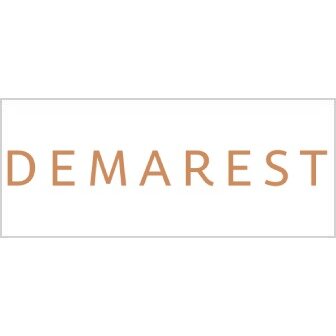Best Reinsurance Lawyers in Brazil
Share your needs with us, get contacted by law firms.
Free. Takes 2 min.
Or refine your search by selecting a city:
List of the best lawyers in Brazil
About Reinsurance Law in Brazil
Reinsurance plays a crucial role in Brazil's insurance market, helping primary insurers manage risk by transferring portions of exposure to other parties. The reinsurance industry in Brazil is regulated by SUSEP (Superintendência de Seguros Privados), which implements the policies established by the National Council of Private Insurance (CNSP). Historically, IRB-Brasil Resseguros S.A. held a monopoly on reinsurance but since the market opened in 2007, new players have entered, significantly changing the landscape. Today, the Brazilian reinsurance market is known for its modernization and adherence to international standards.
Why You May Need a Lawyer
Legal representation may be necessary in situations where you need to ensure compliance with local regulations, negotiate reinsurance contracts, resolve disputes, or have trouble with claim settlements. Lawyers specializing in reinsurance can offer critical insights and support in complex regulatory environments, transaction structuring, and cross-border reinsurance activities. Furthermore, legal professionals can help companies assess risks and design strategies to protect their interests.
Local Laws Overview
The reinsurance industry in Brazil must adhere to several key legal frameworks. The Insurance Law (Decree-Law No. 73/1966) and Complementary Law No. 126/2007 regulate reinsurance transactions. Additionally, there are specific CNSP and SUSEP rulings that dictate operational practices, such as limitations on the cession of risks to reinsurers and local reinsurers' preferential rights. Brazilian laws stipulate that a certain percentage of risks must be placed with local reinsurers, ensuring the development of the domestic market. Familiarity with these local provisions is essential when engaging in reinsurance operations in Brazil.
Frequently Asked Questions
What is the role of SUSEP in reinsurance?
SUSEP is the regulatory body responsible for overseeing the Brazilian insurance market, including reinsurance activities. It ensures compliance with the national legislation and regulatory standards.
Are foreign reinsurers allowed to operate in Brazil?
Yes, foreign reinsurers can operate in Brazil, but they are required to register with SUSEP and adhere to certain limitations and preferential rights given to local reinsurers.
What is the difference between treaty and facultative reinsurance?
Treaty reinsurance involves automatic coverage of a portfolio of risks by the reinsurer, whereas facultative reinsurance involves individual assessment and acceptance of specific risks by the reinsurer.
How has the opening of Brazil’s reinsurance market impacted the industry?
The liberalization of the market allowed more participants and increased competition, leading to better pricing and diversified offerings, benefiting insurers and policyholders alike.
What are local reinsurers' preferential rights?
In Brazil, local reinsurers have a right to a certain percentage of risk placements, safeguarding their interests and promoting the domestic reinsurance market.
What are the main risks covered by reinsurance contracts?
Reinsurance can cover a wide range of risks including property, casualty, liability, life, and health insurance risks, among others, depending on the insurer's needs.
Can reinsurance contracts be customized?
Yes, reinsurance contracts can be tailored to specific needs, taking into account risk profiles, coverage limits, retentions, and other factors.
How do exchange rate fluctuations affect reinsurance agreements in Brazil?
Exchange rate fluctuations can affect the valuation and settlement of claim payments, especially in cross-border agreements involving foreign currencies.
Is there a limit on the amount of risk that can be ceded to reinsurers?
Yes, Brazilian law sets limits on the percentage of risk that can be ceded to reinsurers, prioritizing local reinsurers according to regulatory guidelines.
What is retrocession in reinsurance?
Retrocession is a process where a reinsurer further cedes part of its reinsured risks to another reinsurer, spreading risk further across the insurance chain.
Additional Resources
For further information, you might consider consulting resources from SUSEP, the CNSP, and professional associations such as the Associação Nacional das Resseguradoras Locais (ANRLR). These organizations provide guidance, regulatory updates, and support within the reinsurance industry.
Next Steps
If you require legal assistance in reinsurance, it is advisable to consult with a lawyer specializing in insurance and reinsurance law in Brazil. Consider reaching out to a reputable legal firm with experience in the industry. Prepare all relevant documents and articulate your specific concerns to get tailored legal advice. Additionally, staying informed about regulatory changes through trusted sources is beneficial as you navigate the reinsurance landscape in Brazil.
Lawzana helps you find the best lawyers and law firms in Brazil through a curated and pre-screened list of qualified legal professionals. Our platform offers rankings and detailed profiles of attorneys and law firms, allowing you to compare based on practice areas, including Reinsurance, experience, and client feedback.
Each profile includes a description of the firm's areas of practice, client reviews, team members and partners, year of establishment, spoken languages, office locations, contact information, social media presence, and any published articles or resources. Most firms on our platform speak English and are experienced in both local and international legal matters.
Get a quote from top-rated law firms in Brazil — quickly, securely, and without unnecessary hassle.
Disclaimer:
The information provided on this page is for general informational purposes only and does not constitute legal advice. While we strive to ensure the accuracy and relevance of the content, legal information may change over time, and interpretations of the law can vary. You should always consult with a qualified legal professional for advice specific to your situation.
We disclaim all liability for actions taken or not taken based on the content of this page. If you believe any information is incorrect or outdated, please contact us, and we will review and update it where appropriate.
Browse reinsurance law firms by city in Brazil
Refine your search by selecting a city.















